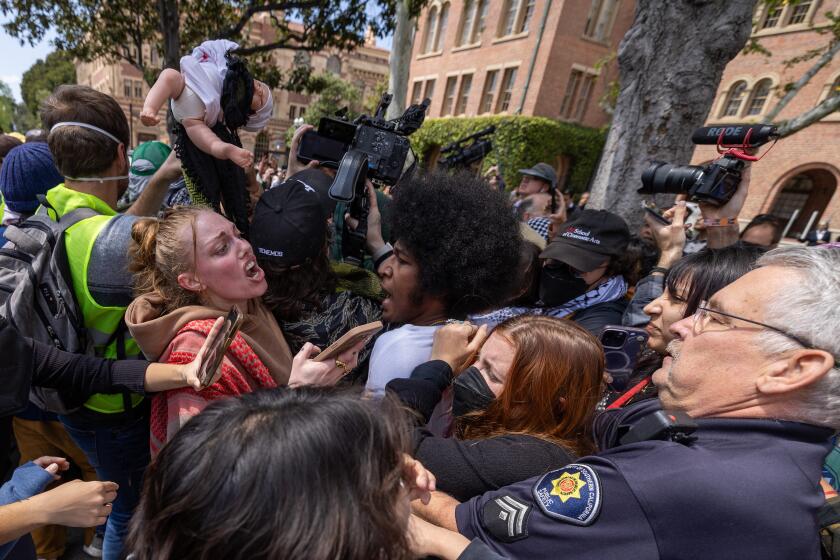Thailand Sees Asian Games as a Winner
In the nick of time, Bangkok is getting a psychological lift from the doldrums of economic depression. The Asian Games are coming, and this capital city is aflutter with excitement.
The 13th Asian Games, which will start Sunday and run through Dec. 20, are the continent’s premier sporting event, a once-every-four-years spectacle that attracts athletes from 43 countries and upward of $100 million in corporate sponsorship.
“They couldn’t have come at a better time for Thailand,” games spokesman Sidhichai Jayant said. “With the way the economy has been, we really needed something to cheer us up. The games are that medicine. And the spending associated with them is going to give the economy a big boost.”
City officials predict that visitors will spend $52 million in Thailand during the games, watching events involving 10,000 athletes and ranging from soccer to snooker. However, tourism executives question whether the event will result in that much of a bonanza.
“Given the economic situation in the region, I can’t imagine that planeloads of people from Seoul and Taipei are going to be pouring into Bangkok,” said Kurt Wachtveitl, general manager of the five-star Oriental Hotel. “On the upper end of the tourist market, I don’t think the games will have a great impact.”
The region’s economic crisis has forced some countries to cut down on their participation.
Dirt-poor Cambodia did not confirm its participation until the Phnom Penh government approved the $72,000 expenditure at the last moment. And ticket sales, except for the opening and closing ceremonies, have been sluggish.
Only a year ago, there were whispers in the Olympic Council of Asia that perhaps a new venue should be found. Officials worried that Thailand’s economic problems would prevent the kingdom from fulfilling its financial commitments.
Yet Thailand plowed ahead, urged on by its popular monarch, Bhumibol Adulyadej.
“Even though the country has faced financial troubles,” he told athletes at his palace recently, “Thailand has shown the watching world that the crisis cannot be an obstacle if there is sincerity and harmony among Thais to make this major event happen.”
The new, 66,000-seat Rajamangkala National Stadium was finished at the eleventh hour and is sold out for the opening festivities, on which the games committee is spending $3 million. King Bhumibol will open and close the games. Tickets for sporting events range from $1.40 to $28.60.
To reduce rush-hour traffic, schools will be closed for two weeks because most parents in Bangkok drive their children to school. Tolls are being waived on expressways near the stadiums to eliminate backups at collection booths, and several major streets have been closed to all but the vehicles needed to transport athletes, officials and more than 200 journalists to the competition sites.
As part of a two-year “Amazing Thailand” promotion to revive tourism, Thailand is spending more than $2 million to advertise the games internationally.
To put on its best face for the games, this teeming city of 10 million residents has adorned pedestrian bridges and roads with half a million potted plants and 1,200 flags. Sidewalks have been swept clean, and 20,000 litter bins have been placed along them. A fleet of 120 new trash collection trucks is standing by to tidy up.
The city’s sanitation director has warned that any Thai who discards even a cigarette butt on the street will be fined. And the director of security for the games, Lt. Gen. Pornsak Durongkaviboon, says his special force of 16,000 police officers will be on the lookout for touts trying to steer visitors to the city’s booming sex industry.
“Opportunist tour guides who try to take tourists to obscene shows or to child prostitutes during the Asian Games will be dealt with,” he said. “The income gained from such activities cannot compensate for the damage to the reputation of the country.”
More to Read
Go beyond the scoreboard
Get the latest on L.A.'s teams in the daily Sports Report newsletter.
You may occasionally receive promotional content from the Los Angeles Times.




